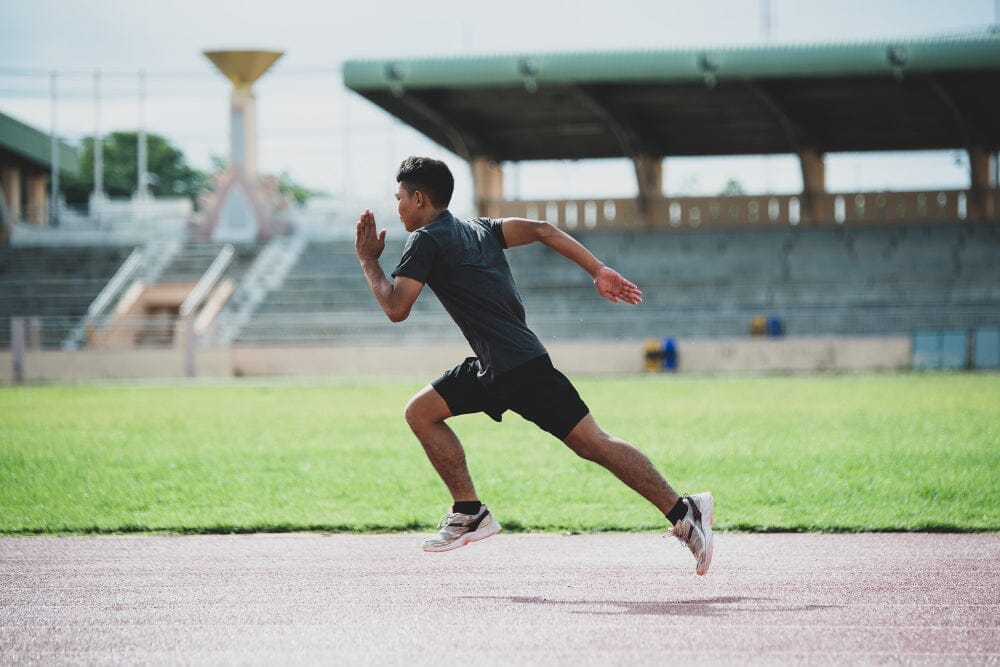
The Role Of Genetics In Fitness And Endurance
We humans are genetically the same people. Irrespective of where we come from and what we do, we are one and the same. However, the living conditions around us and our ancestors have determined and continue to determine which of our genes are expressed and which aren’t. The reason why so many Indians have a paunch is because our ancestors were subject to intense periods of starvation, so our bodies are now saving up for a rainy day.
It may be hard to accept, but these same gene expressions do determine our athletic performance and capacities. For example, Jamaicans traditionally have long limbs and very little subcutaneous fat, giving them a distinct head start in sprinting. Coupled with training and nutrition, they are all set.
The important thing to remember here is this- genetics determine what we do, not what we can do. What we mean is this- your genes may not be giving you a distinct advantage as a sprinter, but this doesn’t mean that you shouldn’t sprint. It simply means that you must work with more awareness to overcome these inherent limitations.
How can fitness genetic testing help? Let’s find out.
Genetic testing in itself is a very straightforward process for the person being tested. A Q-tip is swabbed around your inner cheeks to collect cells. These cells are then tested for DNA variations.
Measurable Parameters
Aerobic Capacity
In the simplest of terms, this is the red blood cells’ ability to transport oxygen as it is supplied to them. Several factors such as chronic anemia, sickle-cell disease and even malaria can compromise your aerobic capacity.
If chronic anemia is a concern, genetic testing can tell you what is the underlying cause of the anemia. Is it a nutritional disorder or are you not making new blood cells as fast as you should be?
Anaerobic Capacity
The opposite of aerobic capacity- this is the ability of bodily cells to function in the absence of oxygen. Muscle fatigue is a direct result of anaerobic activity.
The right micronutrients can often help alleviate this problem to an extent. How does genetic testing help? It measures the degree of muscle fatigue after activity, which is different for different people.
Endurance
This is a very important component of fitness for athletes. Anyone willing to run a marathon or swim a few laps cannot build endurance in one day. The right amount of progressive exercise and nutrition is key to building endurance.
Genetic testing measures endurance as a direct consequence of lifestyle choices. Smokers have lesser endurance than people who have quit smoking, who in turn have lesser endurance than someone who doesn’t smoke at all.
Power
This is the body’s ability to provide the quick burst of energy that is required for intense activity. Sprinting is a great example of an activity that needs a lot of power.
How does genetic testing determine power? By the body’s ability to transport oxygen and nutrients to muscles in the shortest amount of time. Power is also linked to aspects of the brain and speed of impulse transmission.
Injury Repair
Some people have wounds that heal fast, while others take time. Some people also have injuries that are more prone to infection than others. All of these aspects are linked back to our genetic predisposition to these things.
For example, why do some people have a better immunity than others, all other conditions remaining the same?
A New Dimension In Fitness
As you may have noticed by now, genetic testing offers one more way to look into our bodies. We associate most of our conditions with either improper nutrition, or insufficient exercise, but do we stop to consider our natural predisposition to be a certain way?
Ayurveda called it doshas; we now know that they have to do with gene expression. In both cases, they play a role in how fit we are, both to handle daily activity and in athletic situations.
So, to summarize it up,
- Genetic testing helps determine the endurance we have, which in turn determines how much of an activity we can do.
- It determines our fitness level relative to exercise and nutrition, and gives us an insight into what we can change to do even better.
- It tells us our propensity to injury and points to how we can prevent them.
Genetic testing is much like the long-term plan towards fitness and athletic success. By using these results as guides and pointers, we can make important changes to our fitness plan to suit our needs.
* Medical Disclaimer - The following information is for educational purposes only. No information provided on this website, including text, graphic, and images, are intended as substitutes for professional medical advice. Please consult with your doctor about specific medical advice pertaining to your condition(s).





